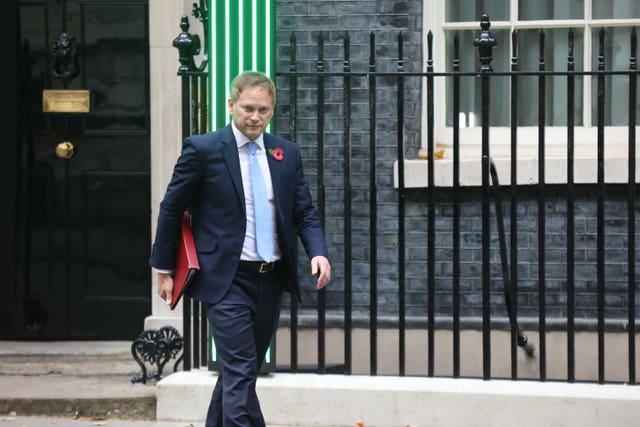
Scotland’s Finance Secretary is seeking assurances that spending on the recommendations of a UK Government transport review will not come from the Scottish budget.
The final report of the Union Connectivity Review was released on Friday, with the headline recommendation of creating a strategic transport network across the UK accepted by the Prime Minister.
Plans also include reducing journey times and increasing capacity on the West Coast Main Line as well as routes between Scotland and London, and conducting an assessment of the east coast road and rail corridor.
“We need to be able to travel with ease between England, Wales, Scotland, Northern Ireland for leisure, to see family and friends, and to do business.” Transport Secretary @grantshapps 🚆🚗🚍
Read more on the Union Connectivity Review: https://t.co/q365NlLZap#Levellingup pic.twitter.com/otg4MAgJ8j
— Department for Transport (@transportgovuk) November 26, 2021
But with transport a devolved matter, Kate Forbes sought an assurance that the Scottish Government budget will not be raided to pay for the projects.
“We always seem to be invited in when it comes to rubberstamping UK Government plans, and my concerns are twofold,” she said on BBC Radio Scotland’s Good Morning Scotland programme.
“Firstly, is this additional money?
“In other words, they talk about adding to Scotland’s infrastructure – is it really additional or are they just netting it off our capital budget?
“Because historically, what the UK Government has done is given Scotland funding and then we determine priorities in consultation with local authorities and communities.
“And the second point is, are these Scotland’s priorities?
“We saw the Prime Minister quite recently ditch the ridiculous idea for a bridge to Northern Ireland.
“Are we going to have sensible ideas coming from this?”
The link between Scotland and Northern Ireland, either as a bridge or a tunnel across the Irish Sea, was heavily derided in Scotland before being dropped.
Later in the BBC programme, UK Transport Secretary Grant Shapps sought to address Ms Forbes’ concerns, rejecting claims that some of the block grant sent to Scotland would be used to pay for the projects.

“I want to strip all the politics away from this – this is common sense, we live on the same island, folks,” he added.
“We need to be able to get goods and people around.
“I think it’s important that we have good journey times, making it easier to travel from Glasgow, Edinburgh or any other part of Scotland – more remote areas – and that means we improve our links, whether that’s by rail or road or air or indeed our maritime links around the United Kingdom.
“I think this is strictly a pretty uncontroversial, sensible thing to do.”


Why are you making commenting on The National only available to subscribers?
We know there are thousands of National readers who want to debate, argue and go back and forth in the comments section of our stories. We’ve got the most informed readers in Scotland, asking each other the big questions about the future of our country.
Unfortunately, though, these important debates are being spoiled by a vocal minority of trolls who aren’t really interested in the issues, try to derail the conversations, register under fake names, and post vile abuse.
So that’s why we’ve decided to make the ability to comment only available to our paying subscribers. That way, all the trolls who post abuse on our website will have to pay if they want to join the debate – and risk a permanent ban from the account that they subscribe with.
The conversation will go back to what it should be about – people who care passionately about the issues, but disagree constructively on what we should do about them. Let’s get that debate started!
Callum Baird, Editor of The National
Comments: Our rules
We want our comments to be a lively and valuable part of our community - a place where readers can debate and engage with the most important local issues. The ability to comment on our stories is a privilege, not a right, however, and that privilege may be withdrawn if it is abused or misused.
Please report any comments that break our rules.
Read the rules hereLast Updated:
Report this comment Cancel